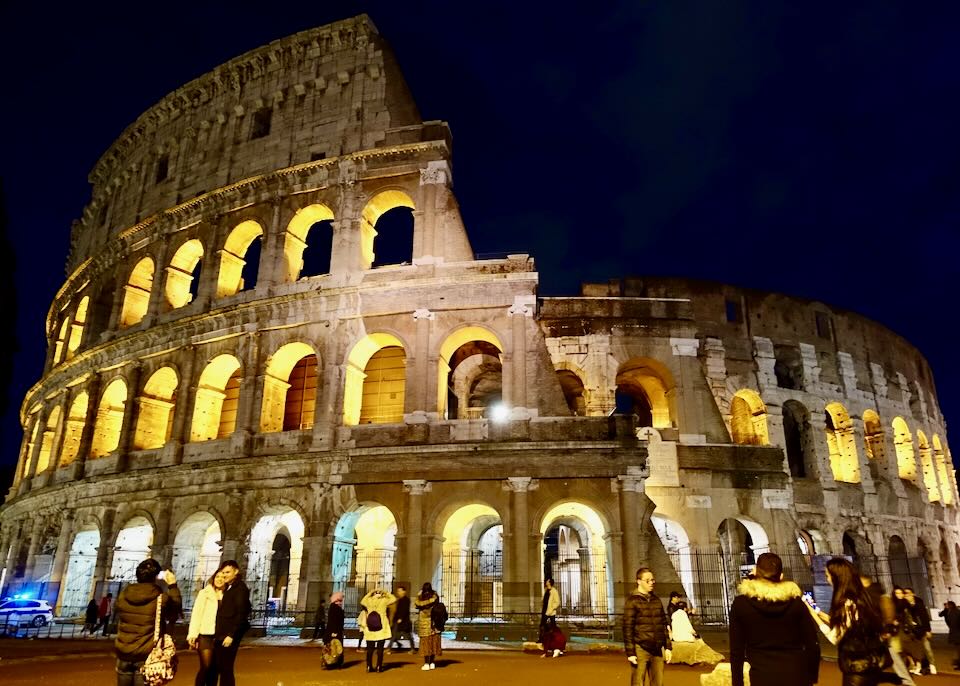
The Colosseum sits in the heart of central Rome. The ancient ruins of the Roman Forum, Palatine Hill, and Via Sacra are about a 5-minute walk from here, while the Spanish Steps, Trevi Fountain, and Pantheon are a 20 to 30-minute walk.
Known as the Eternal City for 2000 of its 2800 years of history, the capital of Italy, Rome, is known for its abundance of well-preserved ancient ruins, monumental architecture, treasured Renaissance art, and incredible culinary tradition. Rome’s city center is less than 4 km from Vatican City, the smallest country in the world, but with the most renowned art collection, including Michelangelo’s Sistine Chapel ceiling. Rome’s best hotels are spread around the city’s central neighborhoods and its pleasant Mediterranean climate make it enjoyable to visit year-round.
The Rome Travel Guide
- Skip to our Rome FAQ
Rome Basics
Rome Hotels
- Best Hotels in Rome
- Best Hotels in Rome for Families
- Best Cheap Hotels in Rome
- New Hotels in Rome
- Rome Hotel Map
Rome Activities and Attractions
- Best Things to Do in Rome
- Best Tours in Rome
- Rome with Kids
- Best Restaurants in Rome
- Best Bars & Clubs in Rome
- Best Shops & Markets in Rome
Rome Trip Planning
- Rome to Florence: How to Get There
- Rome to Milan: How to Get There
- Greece & Italy Itinerary
- Train Tickets in Italy
The Sistine Chapel is located in the Vatican Museums in Vatican City, 2 km from central Rome and well connected by metro (Line A) and city bus (buses #40, #62, #64, and #81 are the most useful).
Frequently Asked Questions about Rome
Where is Rome?
Rome is located in central Italy, about 190 km north of Naples, 210 km north of Pompeii, 230 km south of Florence, and about 300 km south of Venice. Vatican City, the smallest country in the world, is basically a neighborhood of Rome (you don’t need a passport to get in, but there is a dress code) just 2 km west from the Historic Center and 4 km west from Stazione Termini, Rome’s main train station. The city of Rome is about 850 km east of Barcelona, Spain; 1050 km northwest of Athens, Greece; and 1100 km south of Paris. Rome is home to roughly 2.8 million people, making it the 3rd most populous city in Europe (behind Berlin and Madrid). Vatican City is home to about 825 residents.
What is Rome famous for?
Rome is best known for its well-preserved ruins of the Ancient Roman civilization, especially the Colosseum, Palatine Hill, and the Roman Forum. Nearby Vatican City is best-known for Michelangelo’s masterpiece, the ceiling of the Sistine Chapel. Rome is also known for its excellent museums, monumental architecture, decadent restaurants, historic sites, and great shopping, but one of the best things to do in Rome is to just wander the streets and piazzas, enjoying the people-watching, indulging in small cafes, and living la dolce vita.
View of the Roman Forum as seen from inside the Colosseum.
What cities have direct flights to Rome?
There are direct flights to both of Rome’s airports Leonardo da Vinci/Fiumicio International Airports (airport code FCO) and G.B. Pastine/Ciampino (airport code CIA) from several international cities. Flights from most major cities in Western Europe take 2 to 4 hours; many low-cost carriers fly through Ciampino Airport. From North America, direct flights take about 9-10 hours and depart from Atlanta, Boston, Havana, Los Angeles, Mexico City, Miami, Montreal, Newark, New York City, and Toronto. From South America, there are direct flights to Rome from Buenos Aires, Rio de Janeiro, and São Paulo, taking about 12 to 14 hours. Flights to Rome from the Middle East take 2-6 hours and depart from Abu Dhabi, Cairo, Doha, Dubai, and Istanbul. Direct flights to Rome from major Asian cities, such as Bangkok, Beijing, New Delhi, Seoul, Singapore, Taipei, and Tokyo take 7.5 to 12.5 hours.
What is the best month to go to Rome?
Rome is generally a good year-round destination though the weather can be cool and wet from November to March. May through August are the warmest and driest months. The best time to visit Rome is late March through early June or early September through early November when the weather is warm but not blazing hot and the peak tourist crowds of July and August have decreased. It’s not recommended to visit Rome in August; not only is it incredibly hot, but many locals take a month-long vacation, leaving their family-run restaurants and shops closed.
Though much of Rome’s greatest art and architecture is available to visit year-round, such as St. Peter’s Basilica in the Vatican (seen here is the inside of its dome)…
…you’ll want to visit during a sunny, warm month to explore the outdoor ruins like Palatine Hill, seen here.
How long should I spend in Rome?
The main highlights of Rome can be seen in two jam-packed days, if planned wisely (one day exploring the ruins in central Rome and one day visiting the art and architecture of Vatican City). For travelers who are interested in experiencing more than just the “must-do’s”, plan on spending at least four to six full days in Rome. No matter how long you spend, taking a tour can be a great way to experience much of Rome’ history, culture, and food scene in a short amount of time.
You’ll need at least four days to see all of Rome’s best-loved attractions, such as the Trevi fountain, seen here.
Is Rome safe?
Rome is a very safe city with a low crime rate, plenty of pedestrian-only areas, well-lit at night, and always buzzing with people out and about. The main thing travelers need to be aware of are pickpockets, who tend to hit the city’s busiest areas, like the metro stations, crowded train cars, and popular, free attractions (such as the Trevi Fountain or Spanish Steps) as in any big city. Travelers to Rome, including solo women travelers, will feel safe; just be aware of your surroundings and keep your money well-stashed.
Nighttime in Piazza del Popolo, a typical square in Rome. The city is safe and well-lit at night with plenty of people on the streets.
Where is the best area to stay in Rome?
Two of the best neighborhoods to stay in Rome are the Historic Center (best for first-timers, near all major attractions) and Trastevere (best for a local vibe, great dining, and nightlife). Both are largely pedestrianized areas brimming with great restaurants, bars, and shops, and within walking distance of many of Rome’s best-loved attractions. In addition, the areas of Ancient Rome, Monti, Tredente, Trevi Fountain, Prati, Villa Borghese, Barberini, the Quirinale, Testaccio, Ostiense, and Termini also offer a great mix of walkability, sightseeing, great restaurants, and easy transportation.
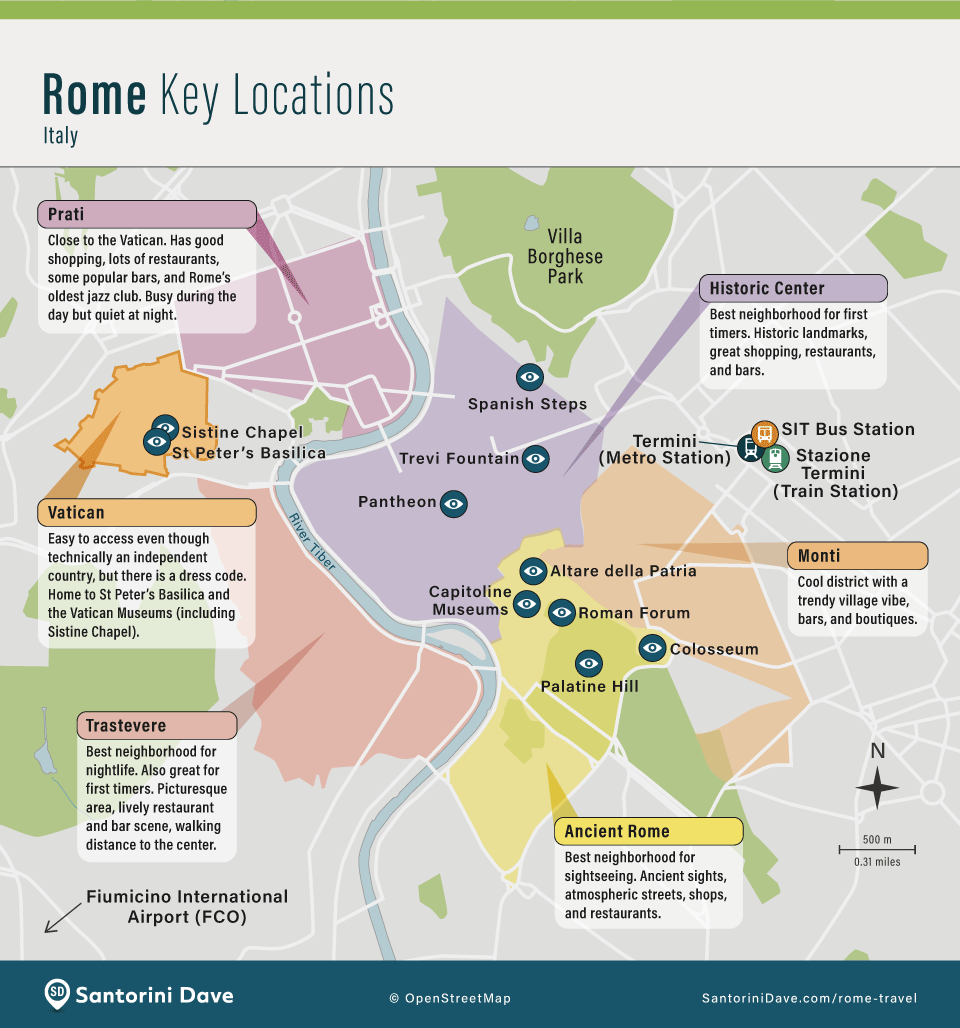
What are the best day trips from Rome?
Rome’s central location makes it an ideal home base for exploring nearby cities. There are organized tours and direct trains running all day from Rome to fantastic sights. The best day trips from Rome include Pompeii and the Amalfi Coast and a visit to the wine region of Frascati.
More than mummies, Pompeii offers a glimpse into a prosperous ancient village with well-preserved frescoes, mosaics, sculptures, and much more. Visiting Pompeii is the best day trip to take from Rome.
What currency is used in Rome?
Italy is part of the European Union, so the currency used in Rome is the Euro (€). Most shops, restaurants, museums, and archaeological sites in Rome accept credit cards, but it is a good idea to also have some cash on hand for small purchases like bottled water, small souvenirs, food from outdoor markets, and taxi fare. ATMs are easy to find throughout central Rome.
Campo dei Fiore Market. Most market stalls accept cash only, so keep a few euros on you for small purchases.
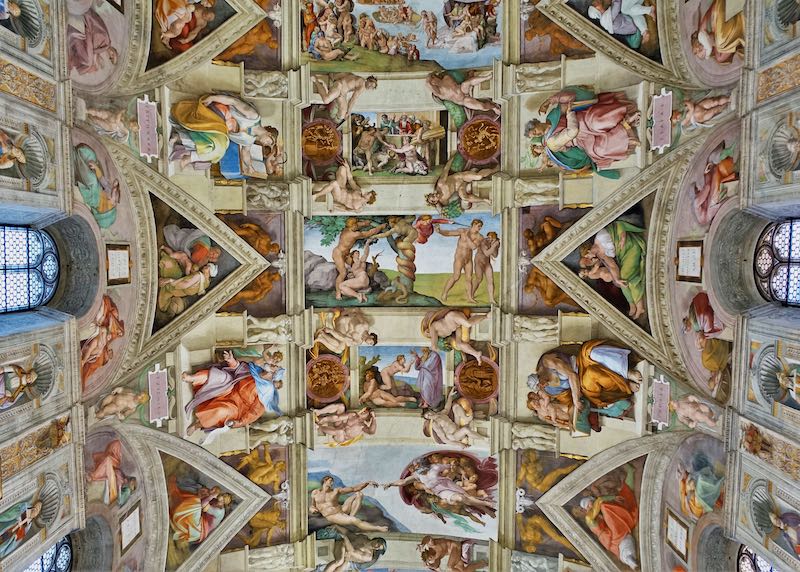
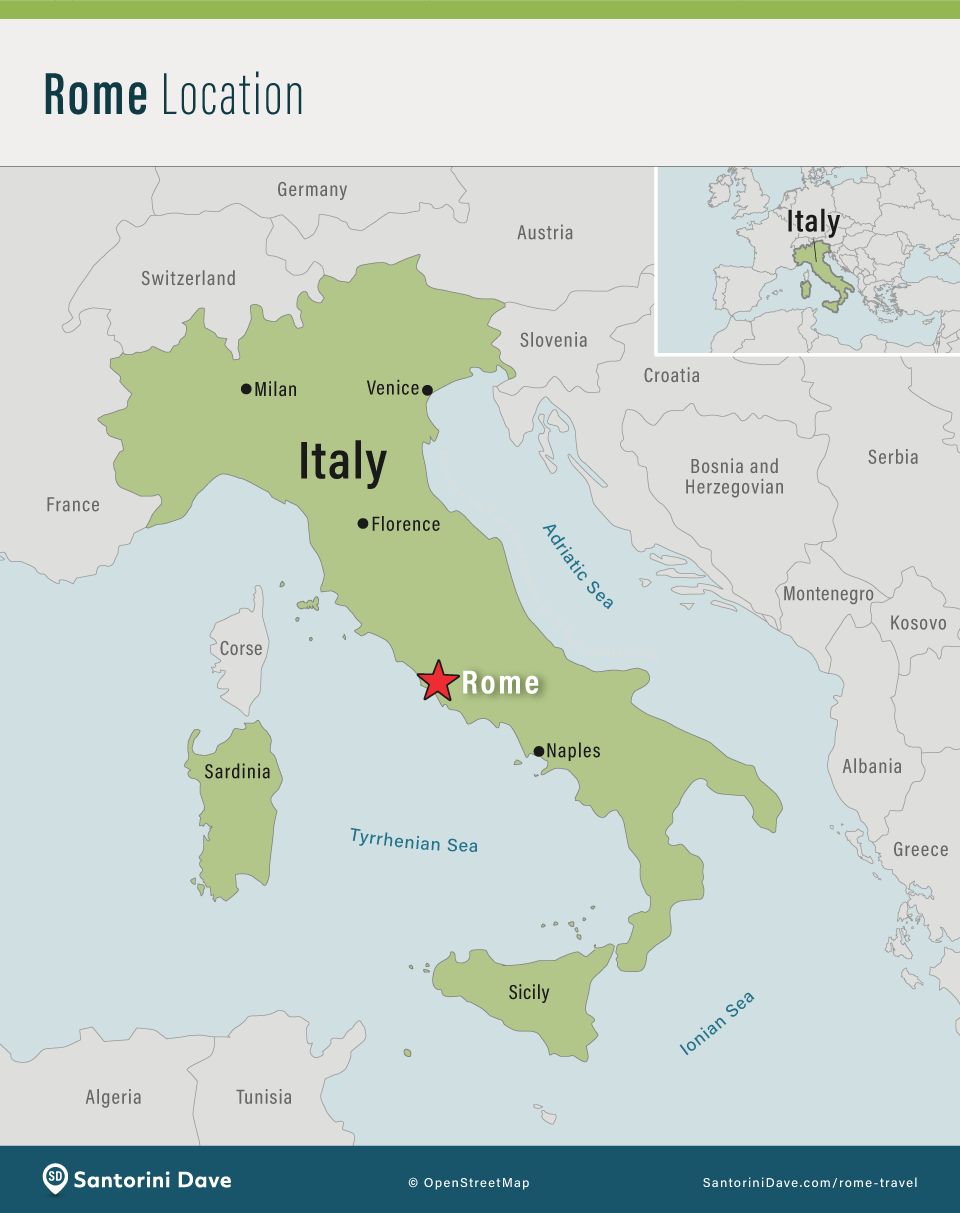
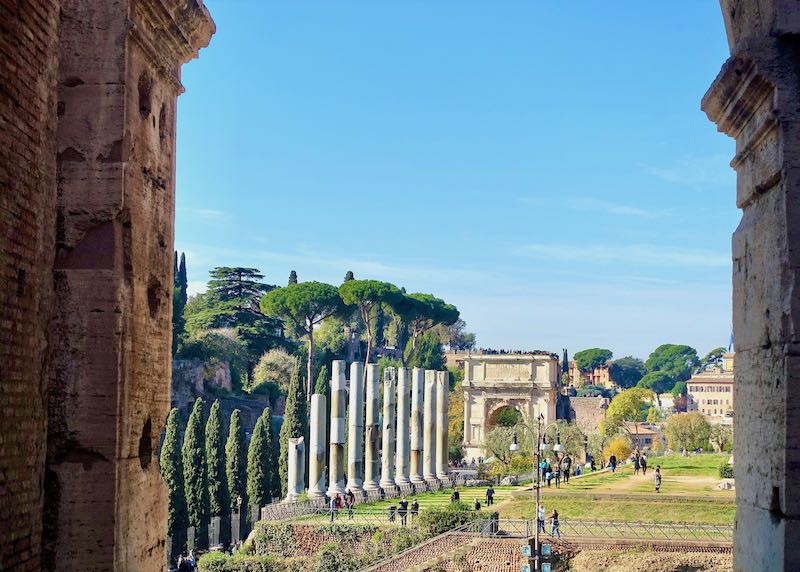
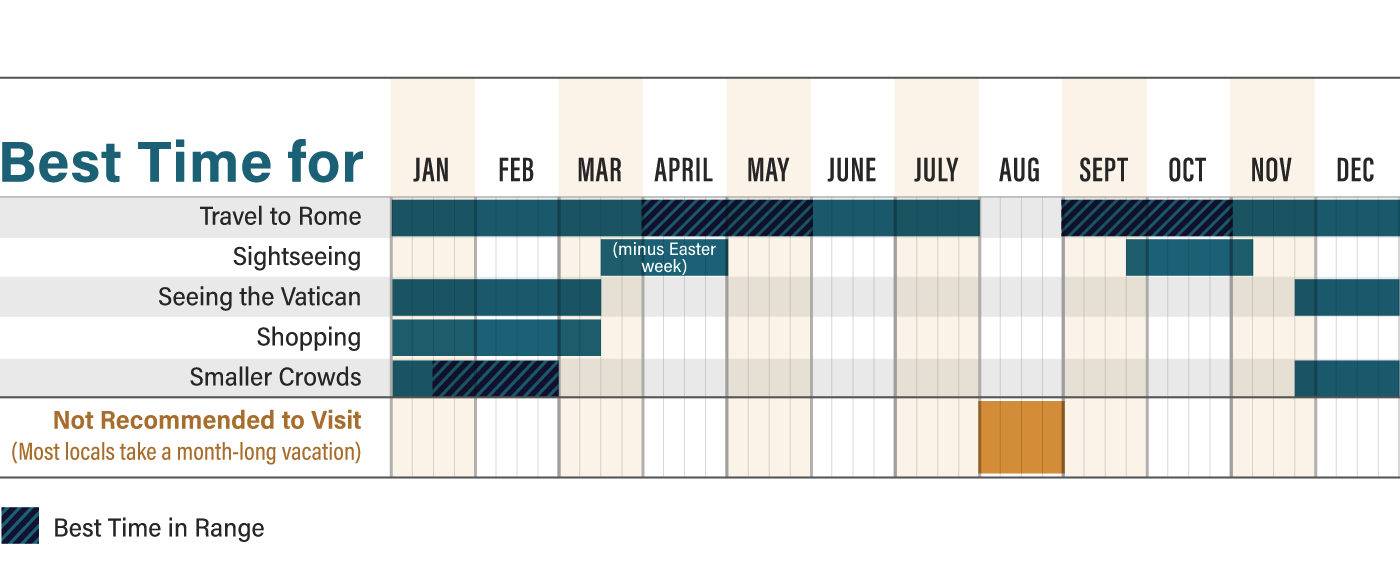

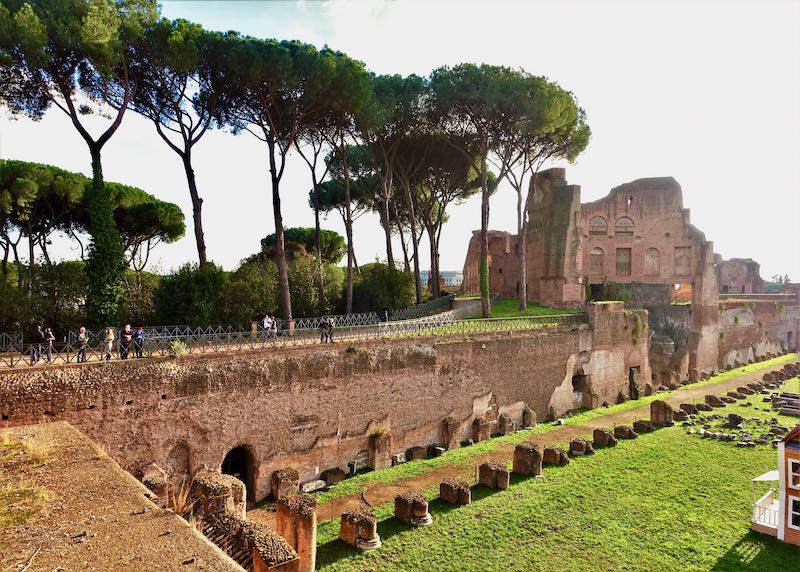
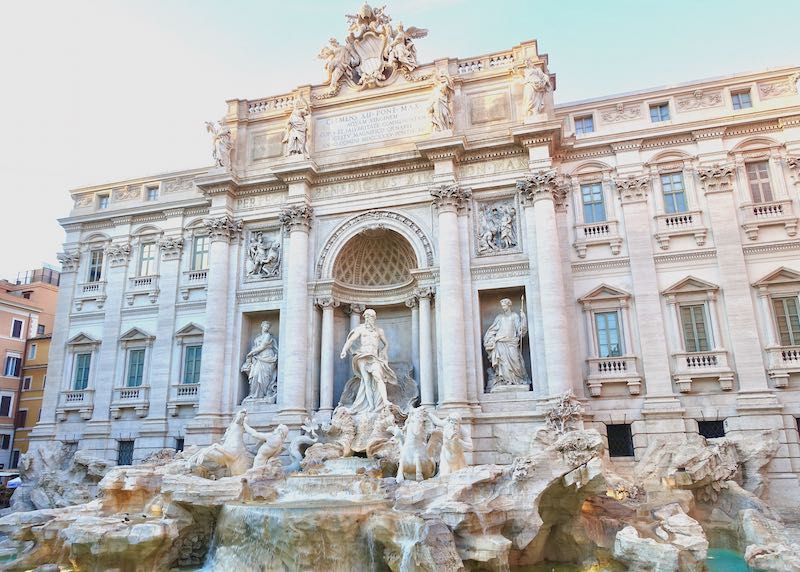
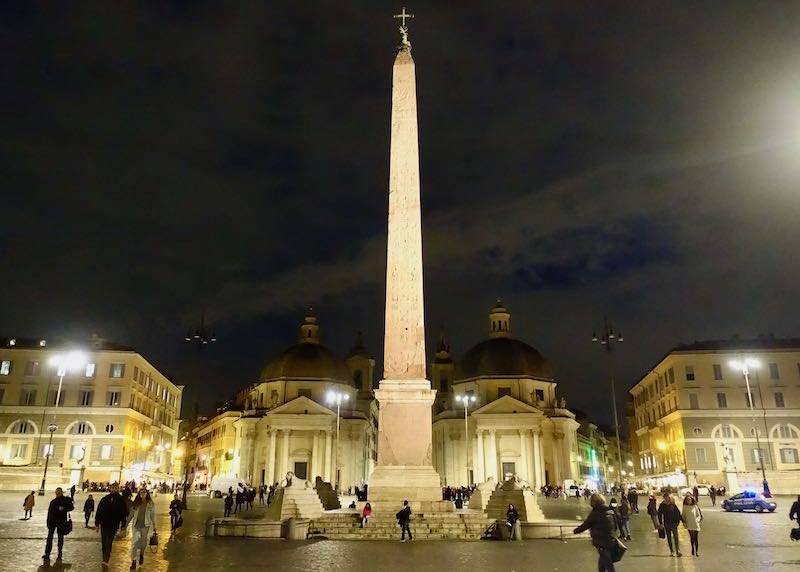
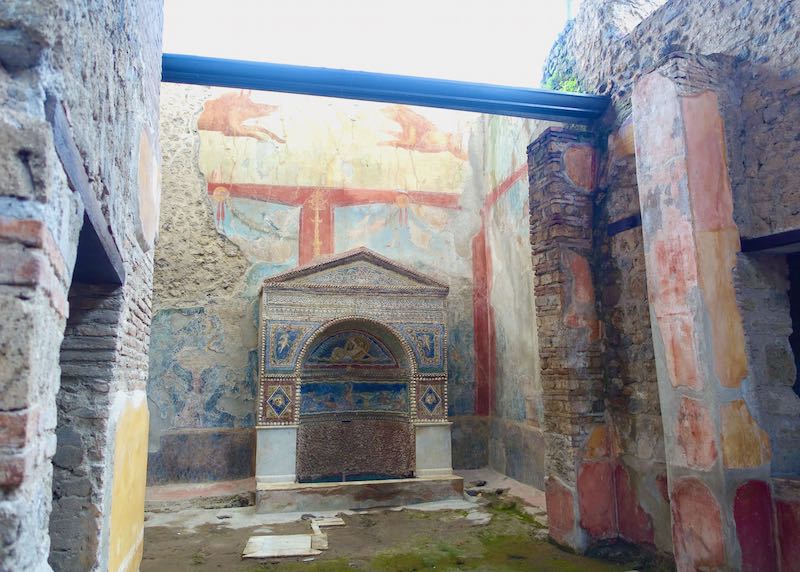
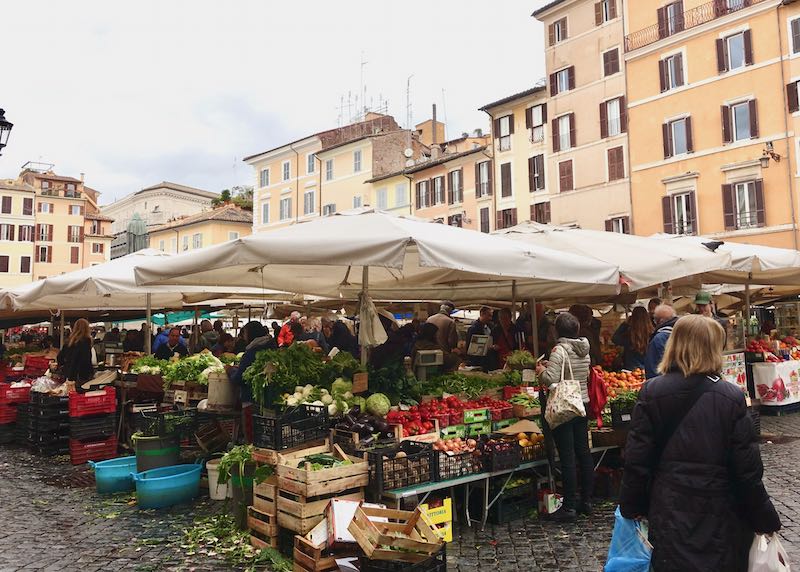
About Santorini Dave